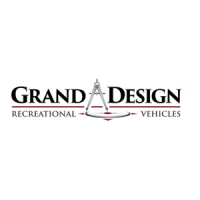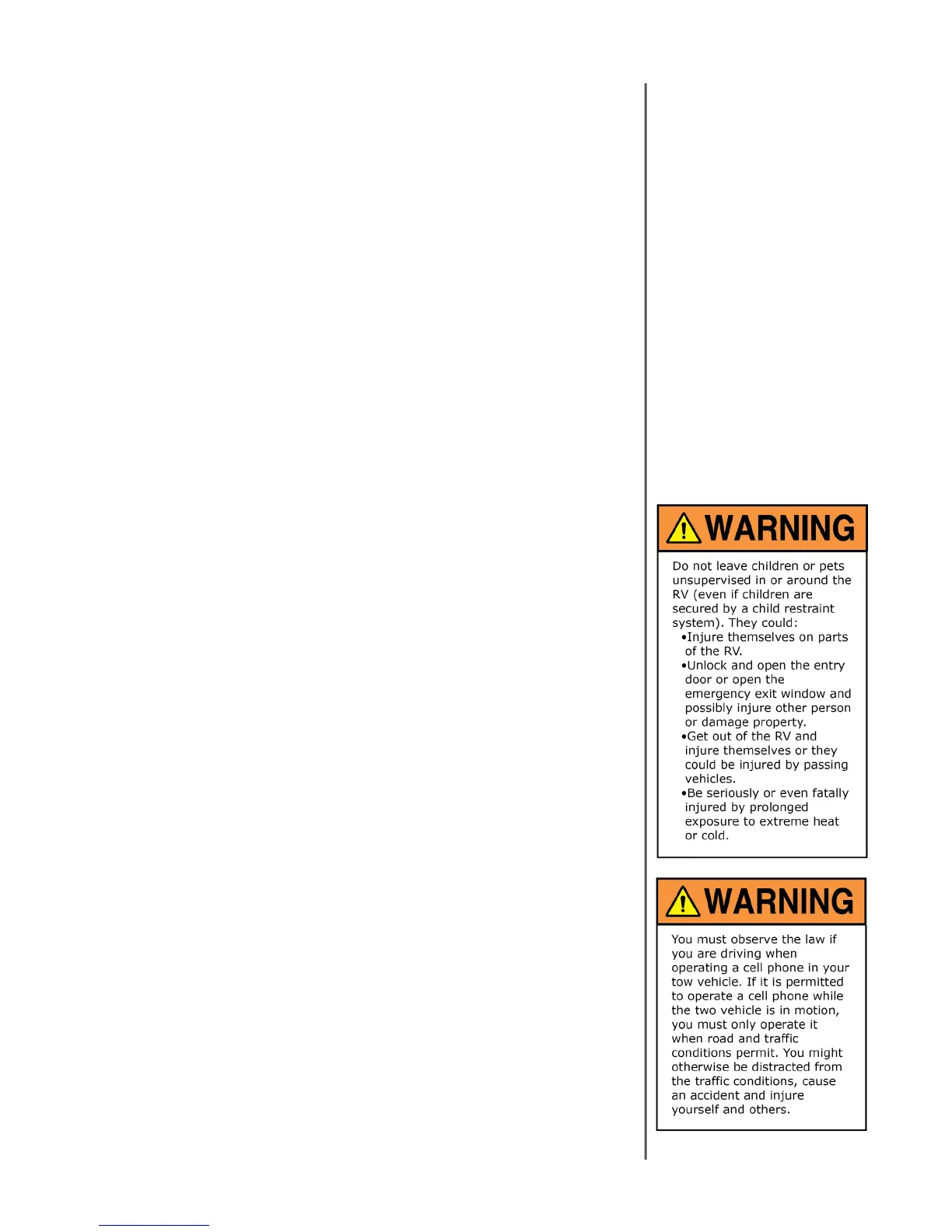69
Towing & Leveling
TOWING & LEVELING
Driving safety and protection against injury cannot be fully
ensured; however, we recommend you pay special attention
to the following:
• The use of daytime running lights can increase other
motorists' awareness of the RV to all traffic.
• Keep the tires inflated to the specified levels. Replace
the tires before they are excessively worn.
• Before changing lanes, check the outside rearview
mirrors for other vehicles and activate the appropriate
turn signal to alert other drivers.
• While driving, watch the behavior of other drivers, bi-
cyclists and pedestrians. Always follow all traffic laws
and regulations. Pay attention to traffic and road con-
ditions. Be a courteous and alert driver. Always leave
room for unexpected events, such as sudden braking.
• Never drive when you are sleepy or tired.
• Never drive when alcohol, drugs or medication have
affected your judgment, reflexes or alertness.
• Obey all traffic laws and use your seatbelts at all
times. Many states have lower speed limit require-
ments for tow vehicle/RV combinations. We recom-
mend that you do not exceed the posted speed limit
when towing an RV.
• Driving with the propane system on can add to the
danger if you are involved in an accident or have a
fire. Most refrigerators will keep food cold or frozen for
eight hours without running while you travel. Shut the
propane system off at the propane cylinder.
• Adverse weather conditions and extremes in terrain
may affect the performance and handling of your tow
vehicle. Do not operate the tow vehicle cruise control
on icy or extremely wet roads, winding roads, in heavy
traffic or in any other traffic situation where a constant
speed cannot be maintained.

